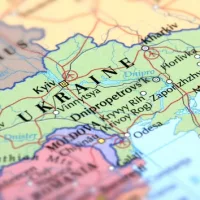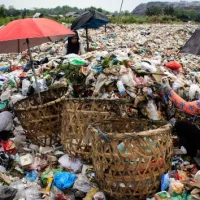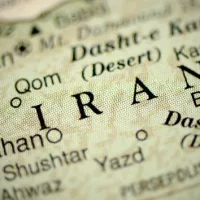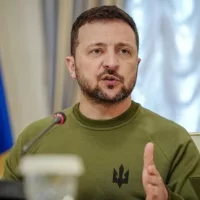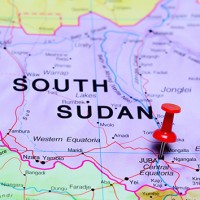
 iStock/Thinkstock(NEW YORK) — The United Nations’ secretary-general is launching an “independent special investigation” into harrowing allegations that U.N. peacekeepers did not respond to prevent the abuse, rape and murder of several civilians and foreigners, including Americans, in South Sudan’s war-torn capital.
iStock/Thinkstock(NEW YORK) — The United Nations’ secretary-general is launching an “independent special investigation” into harrowing allegations that U.N. peacekeepers did not respond to prevent the abuse, rape and murder of several civilians and foreigners, including Americans, in South Sudan’s war-torn capital.
Ban Ki-moon’s spokesman said late Tuesday the U.N. chief “is alarmed” by the disturbing reports of the July 11 attack on a hotel complex popular among foreigners in Juba and allegations that the United Nations Mission in South Sudan (UNMISS) failed to respond appropriately. One person was killed and several civilians were raped and brutally beaten by men in uniform, the spokesman said.
“Due to the gravity of these incidents, related allegations and the preliminary findings by UNMISS, the Secretary-General has decided to launch an independent special investigation to determine the circumstances surrounding these incidents and to evaluate the Mission’s overall response,” Ban’s spokesman said in a statement Monday. “The Secretary-General urges, once more, the Government of South Sudan to investigate these human right violations and to prosecute those involved in these unspeakable acts of violence.”
The U.N. said at least 73 civilians were killed last month after heavy fighting broke out between rival forces in Juba. Meanwhile, tens of thousands of people have fled South Sudan since the fresh cycle of violence erupted in and around the capital on July 7.
During a press briefing Monday, U.S. State Department spokesperson Elizabeth Trudeau could not say whether Americans or other nationalities were singled out during the attack.
“What I can say is the attackers in this incident wore uniforms and they were armed,” Trudeau told reporters, adding that it’s still unclear whether they were government- or rebel-affiliated. The area where the hotel complex is located in Juba was under the control of the South Sudanese army at the time of the attack, she said, but there were clashes between government and opposition forces throughout the capital that day.
Trudeau said the U.S. Embassy in Juba “actively responded” to the July 11 attack on Terrain compound and U.S. Ambassador to South Sudan Mary Catherine Phee “immediately herself” contacted South Sudanese government officials to intervene, including the national security service and the presidential guard.
But by the time government forces arrived on scene, civilians had been raped and beaten.
Since the attack, the U.S. embassy has provided emergency services for those in need and assisted in the departure of more than 80 Americans last month, Trudeau said.
“Following the attack and in the midst of ongoing fighting and violence throughout Juba including in the immediate vicinity of the embassy, the U.S. embassy ensured that the U.S. citizens and foreign nationals affected by the attack were moved to safety and provided emergency medical assistance,” Trudeau told reporters Monday. “We condemn these attacks. We have called for accountability for those who were involved in the violence.”
She said the U.S. State Department has also contacted top U.N. officials about the allegations that U.N. peacekeepers failed to respond.
“We have raised the incident with senior officials in the U.N. department of peacekeeping operations as well as the secretary general’s staff. We will continue to seek clarification of the U.N.’s response to the events on July 11,” Trudeau said.
Samantha Power, the U.S. ambassador to the U.N., said U.S. embassy officials in Juba “responded to distress calls” from the Terrain compound on July 11 amid fighting throughout the capital and “urgently contacted South Sudanese government officials, who sent a response force to the site to stop the attack.”
“We are deeply concerned that United Nations peacekeepers were apparently either incapable of or unwilling to respond to calls for help,” Power said in a statement Sunday. “We have requested and are awaiting the outcome of an investigation by the United Nations and demand swift corrective action in the event that these allegations are substantiated.”
Power called for a “more robust international peacekeeping presence” in South Sudan’s besieged capital. Last week, the U.N. Security Council authorized the deployment of 4,000 additional peacekeepers to join its existing force in the landlocked African nation.
South Sudanese President Salva Kiir told lawmakers Monday that his government is also looking into the July 11 attack and a “commission of inquiry” will be appointed to handle the investigation. He invited the U.N. and member states of a regional bloc to assign a representative to join the commission.
“There have been allegations and reports of various cases of sexual assault. This is a serious matter. I would like to unequivocally stress: We have already begun an initial investigation and we are reviewing medical reports, and intend to prosecute those who will be found involved,” Kiir said from Juba. “We will establish an official commission of inquiry to fact-find and investigate the causes, context and immediate reasons for the outbreak of violence last July. A former judge will head this commission and its members will be carefully selected mainly on the criteria of objectivity and impartiality. My office will ensure that the commission has unhindered access to information.”
Not long after gaining independence and emerging from civil war, South Sudan was plunged back into conflict in Dec. 2013 when Kiir sacked his then-deputy Riek Machar and accused him of plotting a coup. The personal rivalry sparked fighting between forces loyal to the president and rebels allied with Machar. It also deepened a rift between two of South Sudan’s largest ethnic groups — Kiir’s dominant Dinka and Machar’s Nuer people.
Facing sanctions and mounting pressure from the international community, the sparring sides signed a power-sharing agreement in Aug. 2015 with the promise to end nearly two years of ruinous war. More than two years after fleeing the capital, Machar returned to Juba in April and was reinstated as the president’s deputy under the terms of the peace deal. Kiir welcomed the rebel leader, whom he even called “brother,” during the swearing-in ceremony. Power described Machar’s arrival as “the best hope that South Sudan has had in a very long time.”
But Machar fled again to an undisclosed location last month when fighting broke out between his forces and Kiir’s. The president gave his first vice president 48 hours to return to Juba before replacing him with Gen. Taban Deng.
Machar’s spokesman James Gatdet Dak declared in an online statement that Kiir “violated and destroyed the August 2015 peace agreement by illegally dismissing his peace partner.” He said the president’s forces “are on offensive against” Machar’s armed opposition and the rebel leader will return “once a third-party force is deployed.”
According to U.N. figures, the latest upsurge in violence has brought the mass exodus of South Sudanese refugees to neighboring countries since Dec. 2013 to almost 900,000. U.N. officials said local militias have been taking advantage of the turmoil in South Sudan, where more than 2.6 million of its citizens are forcibly displaced.
Copyright © 2016, ABC Radio. All rights reserved.






